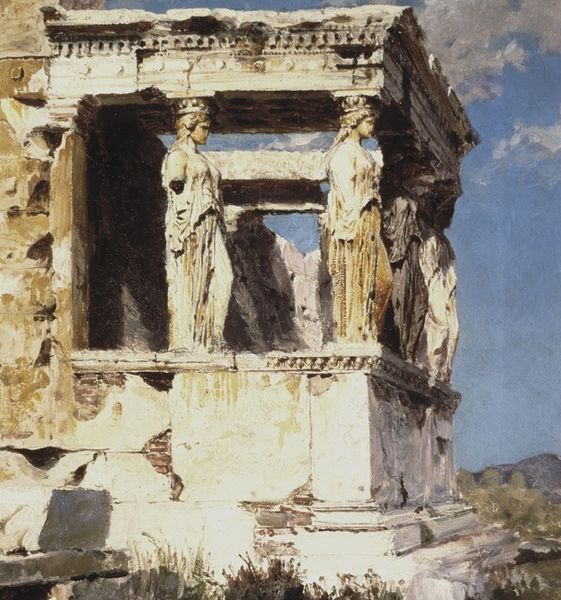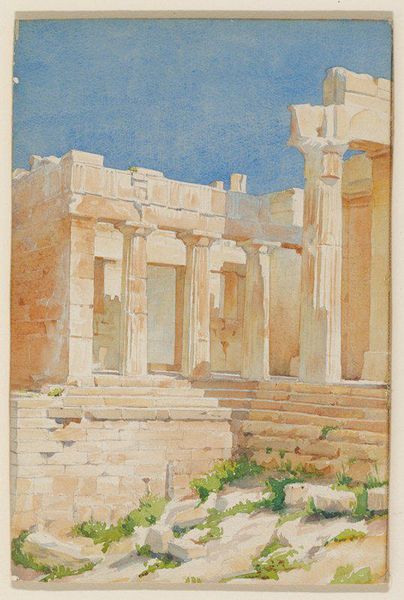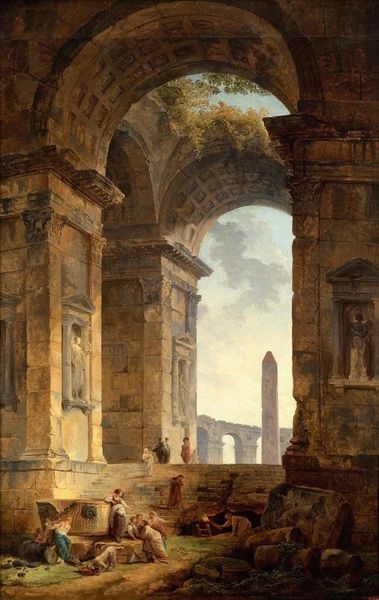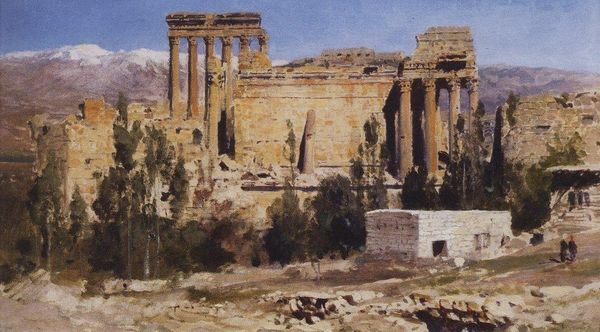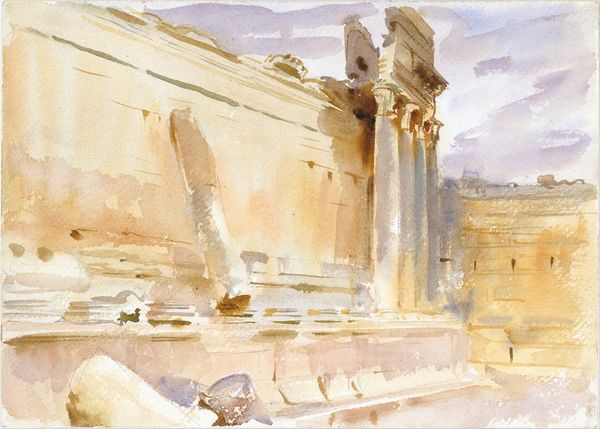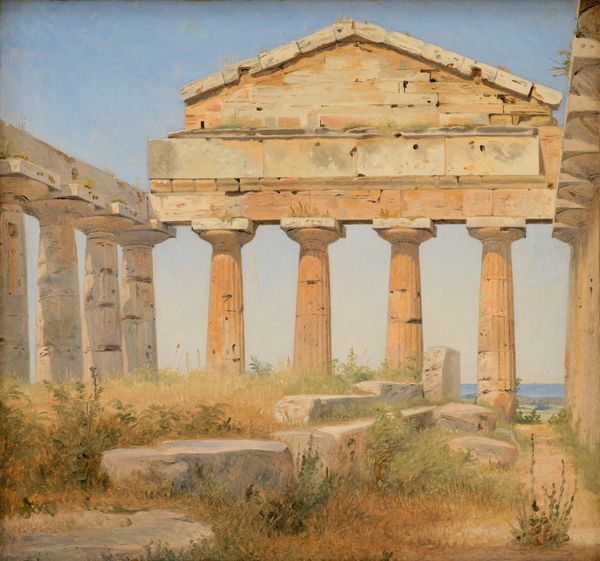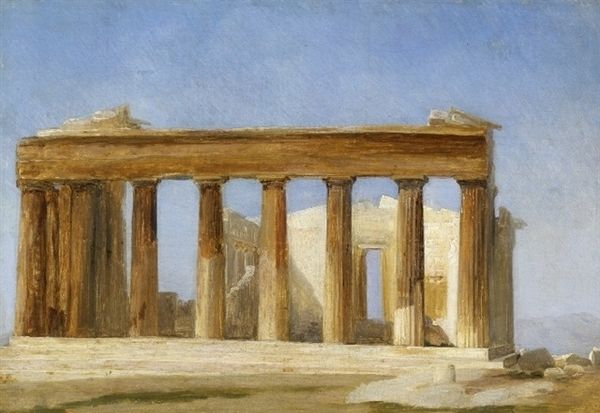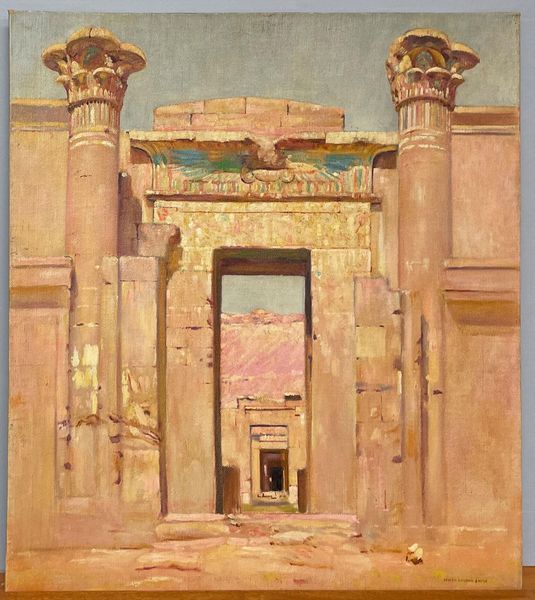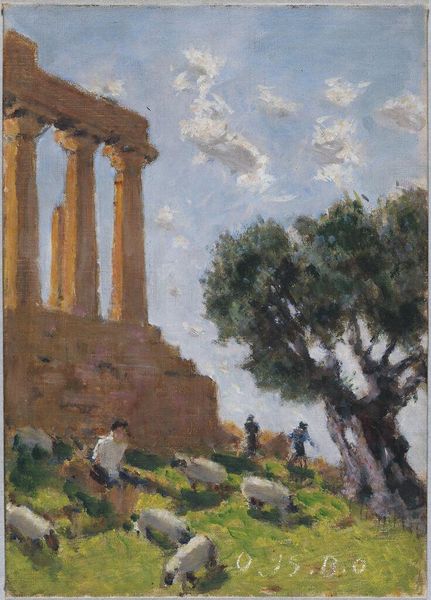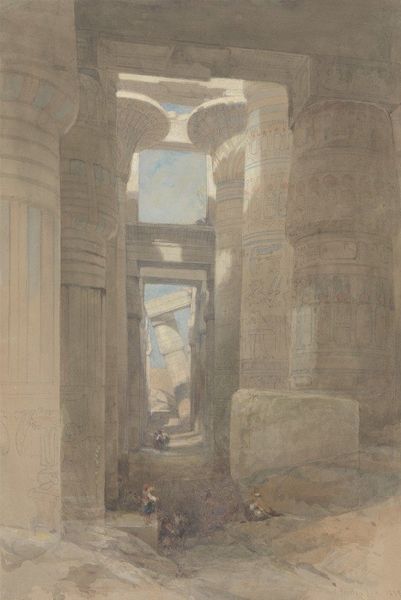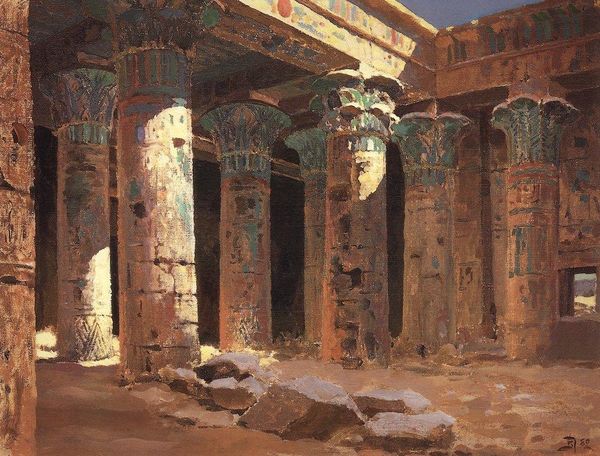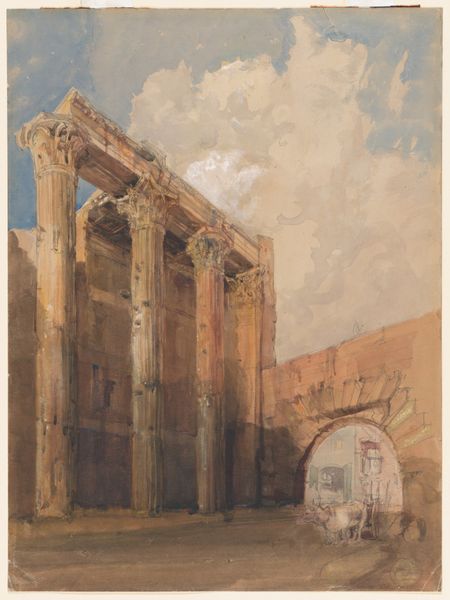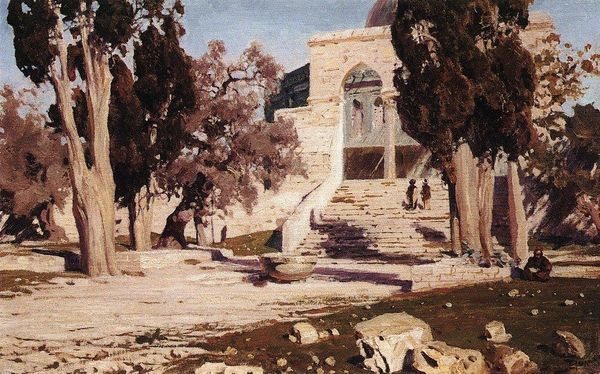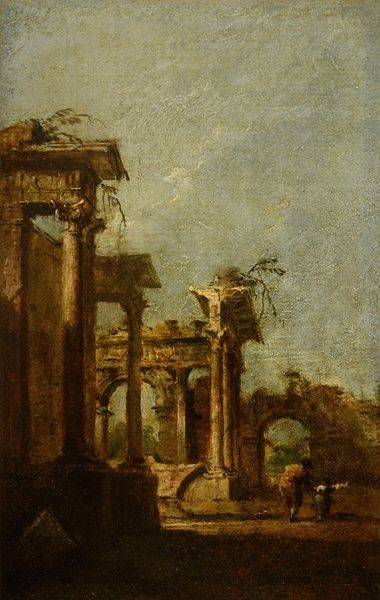
painting, plein-air, oil-paint, architecture
#
portrait
#
painting
#
plein-air
#
oil-paint
#
oil painting
#
classicism
#
cityscape
#
watercolor
#
architecture
#
realism
Copyright: Public domain
Editor: This is Vasily Polenov's "Erechtheion. The portico of caryatids," painted in 1882. It feels incredibly serene, like a classical dreamscape. What stands out to you? Curator: The caryatids! Think about what they represent: female figures acting as architectural support. This immediately suggests strength, resilience, and the feminine embodying the foundation of civilization. Notice how Polenov renders them almost ethereal, yet solid against the ravages of time. What feelings do these figures evoke in you? Editor: Definitely a sense of timelessness, like they've been standing there forever, witnessing history. But also a little melancholy, seeing the ruin and the effects of aging. Curator: Exactly. Ruins are powerful symbols of cultural memory. This particular ruin, the Erechtheion, wasn’t simply chosen at random. It echoes a very specific Hellenic ideal –beauty, philosophy, democracy—and reflects how those values continue to resonate, or are perhaps eroded. Does the rendering style give you any clues about the intent? Editor: The loose brushstrokes and the plein-air style seem to capture a fleeting moment in time. Like Polenov is trying to freeze the image before it disappears completely. Curator: An astute observation. The impressionistic style coupled with the classical subject makes the painting convey not just a place, but also a meditation on history and the persistence of cultural identity through changing times. I find that combination incredibly moving. Editor: I agree! I’m looking at this with completely different eyes now. It is not only about a building, it’s also about cultural permanence. Curator: Precisely, seeing beyond the surface opens a door to understanding layers of significance. A worthwhile pursuit, don't you think?
Comments
No comments
Be the first to comment and join the conversation on the ultimate creative platform.
